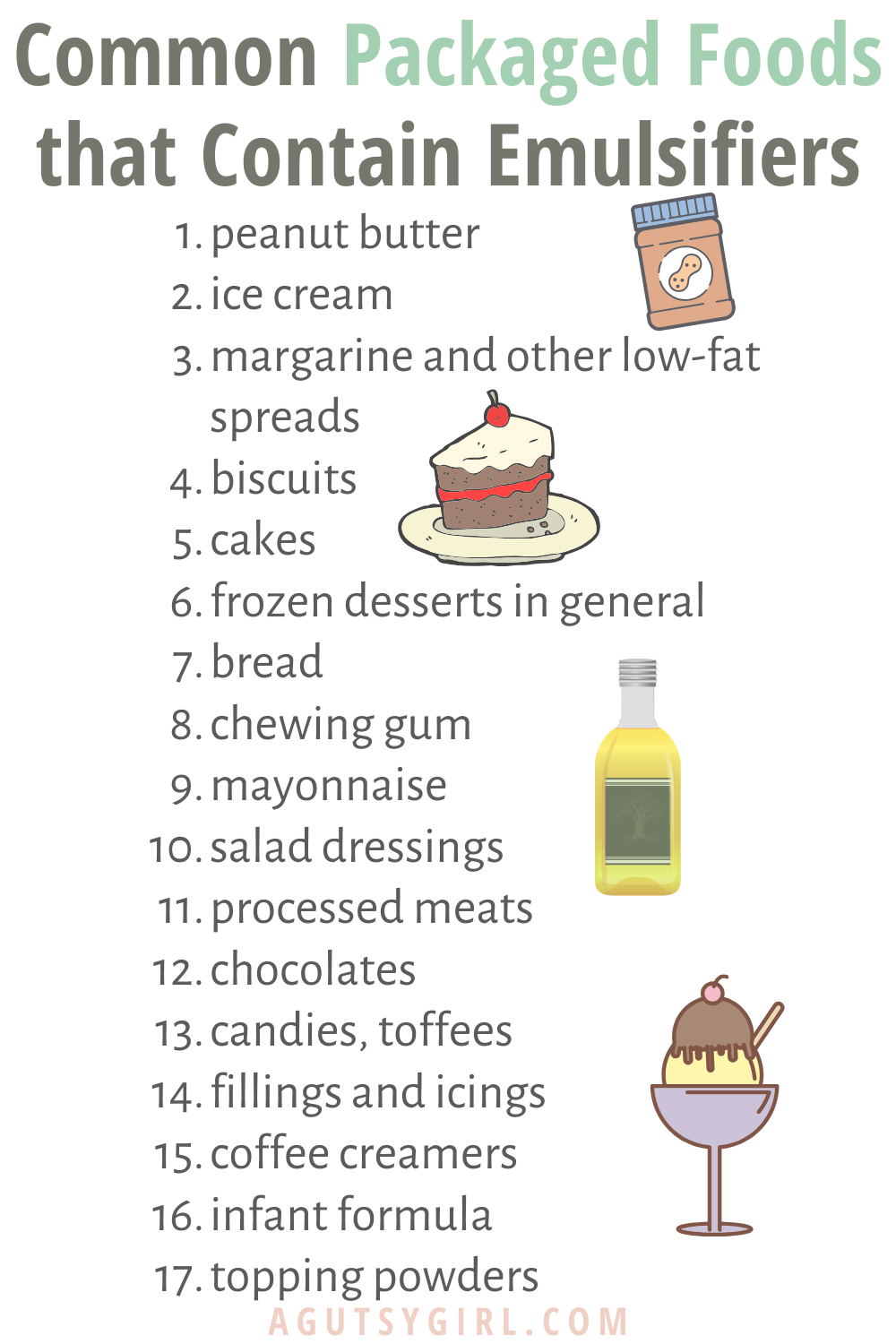The Chemistry Behind Emulsifiers and How They Work
The Scientific research Behind Emulsifiers and Their Relevance in Modern Production
Emulsifiers play an important role in modern-day manufacturing, acting as the unsung heroes that mix oil and water for a broad array of items. As customer preferences change towards cleaner tags, the demand for ingenious emulsifiers is growing.
What Are Emulsifiers?
Emulsifiers are essential representatives in the globe of food and product production, acting as the adhesive that binds two otherwise immiscible fluids, like oil and water. Typical instances consist of lecithin found in egg yolks and soybeans, and mono- and diglycerides utilized in numerous processed foods.

When you whip up a salad dressing or delight in a luscious treat, emulsifiers help preserve that best appearance. They guarantee your products have a consistent mouthfeel and appearance, boosting your general experience. Without emulsifiers, numerous foods would certainly divide, bring about undesirable textures and tastes. So, following time you appreciate a smooth sauce or spread, remember the unsung heroes-- emulsifiers-- that make it all possible.
The Chemistry of Emulsification
When you mix oil and water, you may see they do not mix quickly; that's where the chemistry of emulsification comes into play. To overcome this obstacle, emulsifiers are utilized.
These molecules have a hydrophilic (water-attracting) head and a hydrophobic (water-repelling) tail. When you add an emulsifier, its molecules position themselves at the oil-water user interface, lowering surface area tension and permitting the droplets to mix. The emulsifier forms a protective layer around each bead, avoiding them from integrating back right into separate layers. Comprehending this chemistry is important for attaining security in products like dressings, lotions, and sauces, making emulsification vital in modern production.
Types of Emulsifiers
Numerous kinds of emulsifiers play important roles in supporting mixtures of oil and water. You'll usually experience 2 primary groups: natural and artificial emulsifiers. Natural emulsifiers, like lecithin from egg yolks or soy, are stemmed from plants and animals, making them prominent in food. They're generally taken into consideration safer and much healthier options.
On the various other hand, synthetic emulsifiers, such as mono- and diglycerides, are chemically crafted to boost stability and service life. They're typically made use of in refined foods and cosmetic products.
Additionally, you could discover non-ionic, anionic, and cationic emulsifiers, each with distinct residential properties that influence their performance. Non-ionic emulsifiers, for instance, job well in a variety of pH degrees, while anionic emulsifiers have a tendency to do better in alkaline conditions. Recognizing these kinds can help you choose the best emulsifier for your particular application.
Devices of Solution Development
Comprehending exactly how emulsions form is vital for producing secure mixtures of oil and water. When you introduce an emulsifier, it decreases the surface stress in between the 2 liquids, allowing them to mix more easily.
The emulsifier particles have a hydrophilic (water-attracting) head and a hydrophobic (oil-attracting) tail. When you add an emulsifier, these molecules prepare themselves at the oil-water interface. The hydrophilic heads interact with water, while the hydrophobic tails secure into the oil. This creates an obstacle that supports the beads, avoiding them from coalescing.
Applications of Emulsifiers in Various Industries
Emulsifiers play an important duty across different industries, making your preferred foods smoother and more delightful. In cosmetics, they improve item structure and stability, making sure an enjoyable application experience. And also, in pharmaceuticals, they assist deliver necessary ingredients effectively, enhancing total efficiency.
Food Sector Utilizes
While you could not realize it, emulsifiers play an important function in the food market, boosting the appearance, stability, and shelf life of many products. In baked goods, emulsifiers boost dough handling and preserve moisture, resulting in a better appearance and expanded quality. By making certain harmony and top quality, emulsifiers are substantial to supplying the scrumptious products you delight in every day, making them a vital component in modern-day food production.
Aesthetic Solutions Advantages
When it pertains to cosmetic formulations, her explanation emulsifiers are vital for creating items that feel elegant and carry out effectively. They aid mix oil and water, guaranteeing a smooth and stable uniformity in creams, lotions, and products. You'll observe that emulsifiers enhance item security, avoiding splitting up and lengthening life span. This means you can appreciate your preferred moisturizer without fretting about it spoiling as well quickly. In addition, emulsifiers improve the application experience, permitting even circulation and much better absorption into the skin. By utilizing emulsifiers, you also accomplish a more appealing structure, making your cosmetics feel delightful on your skin. Overall, emulsifiers play a vital function in supplying top notch cosmetic products that fulfill your beauty demands.
Drug Applications Review
In the pharmaceutical market, emulsifiers are necessary for creating reliable medicines. You'll discover emulsifiers in numerous dose types, like lotions, lotions, and liquid suspensions, improving the bioavailability of drugs.
The Effect of Emulsifiers on Product Quality

By making certain stable emulsions, you decrease the danger of perishing and expand shelf life, ultimately saving you money and time. You'll also find that emulsifiers can improve the bioavailability of active ingredients in your products, making them more effective for consumers.
Moreover, they enable you to develop cutting-edge solutions that meet diverse customer demands. Whether you're crafting a luscious dressing or a lavish cream, emulsifiers are crucial for attaining the wanted outcomes. In short, by comprehending and leveraging the impact of emulsifiers, you can significantly boost the quality of your items.
Future Patterns in Emulsifier Advancement
As the demand for cleaner labels and lasting items rises, go the development of brand-new emulsifiers is established to develop significantly. You'll discover a shift in the direction of plant-based and natural emulsifiers, driven by consumer choices for components that are environmentally friendly and less refined. Advancements in biotechnology will likely improve the functionality and performance of these emulsifiers, enabling producers to create secure formulas with fewer ingredients.
You might additionally see a boost in multifunctional emulsifiers Get More Information that not only maintain emulsions but likewise enhance taste, texture, or dietary value. This trend might simplify component lists while boosting product efficiency.
Additionally, with advancements in nanotechnology, emulsifiers can be engineered at the molecular degree to achieve extraordinary stability and performance. Emulsifiers. As you check out these trends, you'll discover that the future of emulsifier growth is not nearly capability, but likewise concerning embracing sustainability and openness in active ingredients
Often Asked Inquiries
Are Emulsifiers Safe for Consumption in Food Products?
Yes, emulsifiers are typically risk-free for intake in food products. They've been thoroughly studied and approved by food security authorities, so you can enjoy your preferred foods without stressing over their effect on your wellness.
Can Emulsifiers Be Derived From Natural Sources?
Yes, you can obtain emulsifiers from natural resources. Components like lecithin from egg yolks or soybeans and casein from milk prevail. These natural emulsifiers help support blends without artificial ingredients, making them popular in various products.

Just How Do Emulsifiers Impact Life Span of Products?
Emulsifiers maintain mixtures, protecting against separation and perishing - Emulsifiers. By maintaining harmony, they extend products' service life, guaranteeing quality and top quality. You'll discover that emulsifiers assist keep your favored foods and cosmetics carrying out more than time
What Are Potential Adverse Effects of Emulsifiers?
You could experience digestive problems when consuming items with emulsifiers, as they can disrupt digestive tract microorganisms. Some researches suggest prospective web links to swelling or allergic reactions, yet much more research study is required to totally understand these effects.

Exist Alternatives to Conventional Emulsifiers?
Yes, there are choices to conventional emulsifiers. You can discover options like all-natural gums, starches, or lecithin. Each alternate offers special residential or commercial properties, so experiment to locate what works best for your certain application.